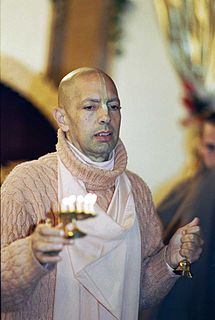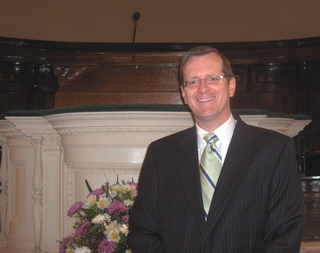A Quote by Robert Sheckley
Why in God's name should a God be praised if he is only performing his Godly function?
Related Quotes
What is sin? It is the glory of God not honored. The holiness of God not reverenced. The greatness of God not admired. The power of God not praised. The truth of God not sought. The wisdom of God not esteemed. The beauty of God not treasured. The goodness of God not savored. The faithfulness of God not trusted. The commandments of God not obeyed. The justice of God not respected. The wrath of God not feared. The grace of God not cherished. The presence of God not prized. The person of God not loved. That is sin.
Only a law-order which holds to the primacy of God's law can bring forth true freedom, freedom for justice, truth, and godly life. Freedom as an absolute is simply an assertion of man's "right" to be his own god; this means a radical denial of God's law-order. "Freedom" thus is another name for the claim by man to divinity and autonomy. It means that man becomes his own absolute.
Wrath, unlike love, is not one of the intrinsic perfections of God. Rather, it is a function of God's holiness against sin. Where there is no sin, there is no wrath-but there will always be love in God. Where God in His holiness confronts His image-bearers in their rebellion, there must be wrath, or God is not the jealous God He claims to be, and His holiness is impugned. The price of diluting God's wrath is diminishing God's holiness.
Through the years, I have discovered some essential principles in discerning God's will: First, by God's grace, we must be firmly committed to seeking first the Kingdom of God and His glory. Secondly, we must establish a life discipline of renewing our minds in the Word of God. Thirdly, we must seek godly counsel from mature believers. Fourthly, we must watch for signs of God's providence opening doors and closing them. Finally, we should consider the desires of our heart.
Why should I wish to see God better than this day? I see something of God each hour of the twenty-four, and each moment then, In the faces of men and women I see God, and in my own face in the glass; I find letters from God dropped in the street, and every one is signed by God's name, And I leave them where they are, for I know that others will punctually come forever and ever.
Peace should be a hallmark of the godly person, first because it is a Godlike trait: God is called the God of peace several times in the New Testament. He took the initiative to establish peace with rebellious men, and He is the author of both personal peace as well as peace among men. Peace should be part of our character also because God has promised us His peace, because He has commanded us to let peace rule in our lives and relationships, and because peace is a fruit of the Spirit and therefore an evidence of His working in our lives.
A king is a mortal god on earth, unto whom the living God hath lent his own name as a great honour; but withal told him, he should die like a man, lest he should be proud, and flatter himself that God hath with his name imparted unto him his nature also. JOHN LOCKE, "Of a King", The Conduct of the Understanding: Essays, Moral, Economical, and Political A king may be a tool, a thing of straw; but if he serves to frighten our enemies, and secure our property, it is well enough: a scarecrow is a thing of straw, but it protects the corn.


































